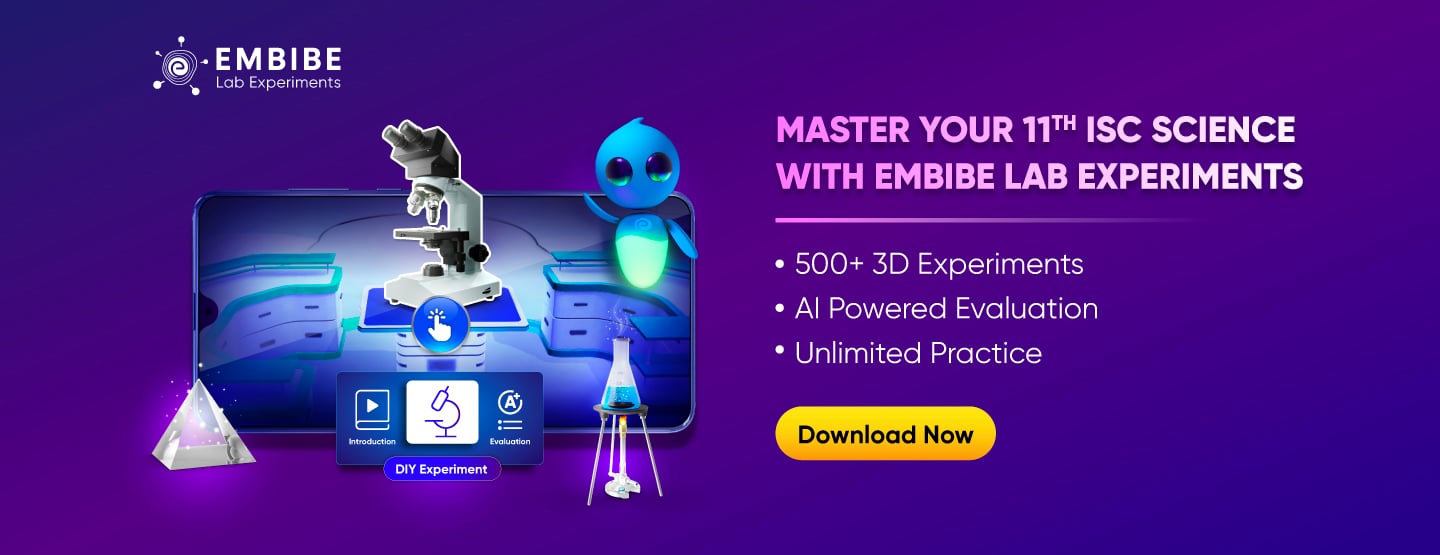- Written by Hrushikesh Vyas
- Last Modified on 5-11-2024
Karnataka Board Class 11 Exam 2025
The Karnataka School Examination and Assessment Board (KSEAB) was established in 1964 in the State of Karnataka to provide quality education to the students of Karnataka. This board is responsible for conducting the PUC and SSLC examinations. The board conducts the examination for Class 11, which is known as the 1st PUC. It also sets the rules and regulations to conduct the exam and prescribes the syllabus.
Class 11 helps in building the right fundamentals for students to move to Class 12. This article discusses the Karnataka Board Class 11 exam 2025 and all relevant information like exam syllabus, exam date, preparation tips etc. Students should be aware of this information as they help in exam preparation. Continue reading further to know more about the Karnataka Board Class 11 exam.
Karnataka Board Class 11 Exam Summary 2025
Class 11 is a school-level exam conducted at the respective schools by following the guidelines set by the board. The exam is usually conducted in February-March every year. It is an offline exam, and the time duration is 3 hours. Students have to prepare for this exam very thoroughly to achieve good results and also ensure that they are prepared to face the next class. But before going into further details about the exam, let us have a look at the Karnataka Board Class 11 exam summary:
| Particulars |
Details |
| Conducting Body |
The Karnataka School Examination and Assessment Board (KSEAB) |
| Exam Name |
Karnataka Pre-University Certificate Examination (PUC Board) |
| Exam Mode |
Offline |
| Exam Frequency |
Once a year |
| Exam Duration |
3 hours |
| Full Marks |
100 for each paper |
| Passing Marks |
35% |
Karnataka Board Official Website Link
https://kseab.karnataka.gov.in/
Karnataka 1st PUC Latest Updates
- Karnataka Board will tentatively conduct Class 11 board exams in the second week of February 2025.
Karnataka Board Class 11 Exam Pattern
The exam pattern is an important aspect that students should be aware of when preparing for any exam. It gives them an idea of the exam layout, the marking scheme, and types of questions that can be asked in the exam. Knowing this helps them strategically prepare for the exam and also allows them to be more mentally prepared. In this way they can come up with a strategy to effectively prepare for the exam. The time duration for the exam is 3 hours and there is no negative marking for wrong answers. The table below shows the Karnataka Board Class 11 exam pattern.
| Particulars |
Details |
| Types of Questions |
Very short answer questions (VSA) (1 mark each)
Short answer type questions-I (SA-I) (2 marks each)
Short answer type questions-II (SA-II) (3 marks each)
Long answer type questions(LA)(5 marks each) |
| Medium of Question Paper |
English or Kannada for academic subjects
Language paper
English paper |
| Maximum Marks for Language Subjects |
100 marks |
| Maximum Marks for Theory |
70 marks |
| Maximum Marks for the Practicals |
30 marks |
Karnataka State Board Class 11 Exam Pattern: Marking Scheme
The Karnataka State Board Class 11 exam follows a similar pattern to the Class 12 exam to help students be more familiar as and when they appear for the board exam. The total time duration for the exam is 3 hours for all subjects, including the ones that have practicals. Students can refer to the table below to better understand the marking scheme of the questions that will be asked in the exam.
| Particulars |
Details |
| Total number of questions |
50 |
| Very short answer (VSA) questions (1 mark each) |
10 out of 10 |
| Short answer (SA-1) questions (2 marks each) |
10 out of 14 |
| Short answer (SA-2) questions (3 marks each) |
10 out of 14 |
| Long answer (LA-1) questions (5 marks each) |
6 out of 10 |
| Long answer (LA-2) questions (10 mark= 6+4) |
1 out of 2 |

Karnataka Board Class 11 Exam Syllabus 2025
Students must know the syllabus in order to prepare for the exam effectively. Knowing the syllabus helps students study the right chapters and topics. They will be able to devise a proper timetable depending on the chapters and the topics included. The sections below give the subject-wise syllabus for Karnataka Board Class 11. And students should always refer to the syllabus whenever they study any subject.
KSEAB Class 11 Physics Syllabus
Physics is a subject that needs clear concepts as it has a lot of numerical problems. The subject also has a vast application in real-life. Therefore students should study all the chapters thoroughly. They can refer to the syllabus for KSEAB Class 11 Physics below:
| Chapter No. |
Chapter Name |
| 1. |
Physical World |
| 2. |
Units and Measurements |
| 3. |
Motion in a Straight Line |
| 4. |
Motion in a Plane |
| 5. |
Laws of Motion |
| 6. |
Work, Energy and Power |
| 7. |
System of Particles and Rotational Motion |
| 8. |
Gravitation |
| 9. |
Mechanical Properties of Solids |
| 10. |
Mechanical Properties of Fluids |
| 11. |
Thermal Properties of Matter |
| 12. |
Thermodynamics |
| 13. |
Kinetic Theory |
| 14. |
Oscillations |
| 15. |
Waves |
KSEAB Class 11 Chemistry Syllabus
Chemistry has three sections namely, Physical Chemistry, Organic Chemistry, and Inorganic Chemistry. There are a total of 14 chapters which are all important. Therefore students should ensure that they study all of them. They can refer to the table below for the KSEAB Class 11 Chemistry syllabus:
| Chapter No. |
Chapter Name |
| 1. |
Some Basic Concepts of Chemistry, |
| 2. |
Structure of Atom |
| 3. |
Classification of Elements and Periodicity in Properties |
| 4. |
Chemical Bonding and Molecular Structure |
| 5. |
States of Matter |
| 6. |
Thermodynamics |
| 7. |
Equilibrium |
| 8. |
Redox Reaction |
| 9. |
Hydrogen |
| 10. |
The s-Block Elements |
| 11. |
The p-Block Elements |
| 12. |
Organic Chemistry: Some Basic Principles and Techniques |
| 13. |
Hydrocarbons |
| 14. |
Environmental Chemistry |
KSEAB Class 11 Mathematics Syllabus
Mathematics as a subject requires conceptual understanding and a strong foundation. Students should practice questions daily to have a better understanding and improve their problem-solving skills. They can refer to the table below for the KSEAB Class 11 Maths syllabus:
| Chapter No. |
Chapter Name |
| 1. |
Sets |
| 2. |
Relations and Functions |
| 3. |
Trigonometric Functions |
| 4. |
Mathematical Induction |
| 5. |
Complex Numbers and Quadratic Equations |
| 6. |
linear inequalities |
| 7. |
Permutation and Combination |
| 8. |
Binomial Theorem |
| 9. |
Sequences and Series |
| 10. |
Straight Lines |
| 11. |
Conic Sections |
| 12. |
Introduction to Three-Dimensional Geometry |
| 13. |
Limits and Derivatives |
| 14. |
Mathematical reasoning |
| 15. |
Statistics |
| 16. |
Probability |
| 17. |
Properties of Triangle |
KSEAB Class 11 Biology Syllabus
Students need to be well versed with all the chapters in Biology. Since the subject has many number of chapters, they must study everyday to prepare for the exam well. They can refer to the table below to get the KSEAB Class 11 syllabus and start preparing right away:
| Chapter No. |
Chapter Name |
| 1. |
The Living World |
| 2. |
Biological Classification |
| 3. |
Plant Kingdom |
| 4. |
Animal Kingdom |
| 5. |
Morphology of Flowering Plants |
| 6. |
Anatomy of Flowering Plants |
| 7. |
Structural Organisation in Animals |
| 8. |
Cell: The Unit of Life |
| 9. |
Biomolecules |
| 10. |
Cell Cycle and Cell Division |
| 11. |
Transport in Plants |
| 12. |
Mineral Nutrition |
| 13. |
Photosynthesis in Higher Plants |
| 14. |
Respiration in Plants |
| 15. |
Plant Growth and Development |
| 16. |
Digestion and Absorption |
| 17. |
Breathing and Exchange of Gases |
| 18. |
Body Fluids and Circulation |
| 19. |
Excretory Products and Their Elimination |
| 20. |
Locomotion and Movement |
| 21. |
Neural Control and Coordination |
| 22. |
Chemical Coordination and Integration |
Karnataka Board Class 11 Exam Blueprint
The exam blueprint helps students know the exam layout, the mark distribution of the questions and other parameters that prove useful for their exam preparation. The board releases the exam blueprint on their official website, but students can get it here as well. They should refer to it while preparing for the exam to strategise their learning accordingly. The section below gives the subject-wise blueprint for Karnataka Board Class 11 exam.
KSEAB Class 11 Maths Blueprint
The Maths blueprint for KSEAB Class 11 exam give students an idea of how many questions are there and what are the marking scheme. There are 10 1 mark questions, 14 2 marks questions, 14 3 marks questions, 10 5 marks questions, 2 6 marks questions and 2 4 marks questions. Every section has options for students to choose which question they want to answer.. The KSEAB Class 11 Maths blueprint is mentioned below:
| Chapter Name |
Marks |
| Sets |
9 |
| Relations and Functions |
11 |
| Trigonometric Functions |
20 |
| Mathematical Induction |
5 |
| Complex Numbers and Quadratic Equations |
9 |
| Linear Inequalities |
8 |
| Permutation and Combination |
10 |
| Binomial Theorem |
9 |
| Sequences and Series |
11 |
| Straight Lines |
11 |
| Conic Sections |
10 |
| Introduction to Three-Dimensional Geometry |
8 |
| Limits and Derivatives |
16 |
| Mathematical reasoning |
6 |
| Statistics |
8 |
| Probability |
9 |
| Properties of Triangle |
|
KSEAB Class 11 Physics Blueprint
The Class 11 Physics question has 4 sections – A, B, C, and D. 15 questions are MCQs or 1 mark, 9 questions are there for 2 marks and 3 marks each, 6 questions for 5 marks, and 4 questions for numerical problems of 5 marks each. Students can find the KSEAB Class 11 Physcis blueprint in the table below:
| Chapter Name |
Marks |
| Physical World |
2 |
| Units and Measurements |
4 |
| Motion in a Straight Line |
8 |
| Motion in a Plane |
11 |
| Laws of Motion |
10 |
| Work, Energy and Power |
11 |
| System of Particles and Rotational Motion |
11 |
| Gravitation |
9 |
| Mechanical Properties of Solids |
4 |
| Mechanical Properties of Fluids |
5 |
| Thermal Properties of Matter |
10 |
| Thermodynamics |
8 |
| Kinetic Theory |
4 |
| Oscillations |
8 |
| Waves |
10 |
KSEAB Class 11 Chemistry Blueprint
The Chemistry question also has 4 sections – A, B, C, and D. Part A has 20 questions of 1 mark, part B has 8 questions of 2 marks, part C has 8 questions of 3 marks, and part D has 11 questions of 5 marks. Students can find the KSEAB Class 11 Chemistry blueprint in the table below:
| Chapter Name |
Marks |
| Some Basic Concepts of Chemistry, |
9 |
| Structure of Atom |
10 |
| Classification of Elements and Periodicity in Properties |
9 |
| Chemical Bonding and Molecular Structure |
11 |
| States of Matter |
13 |
| Thermodynamics |
5 |
| Equilibrium |
12 |
| Redox Reaction |
5 |
| Hydrogen |
4 |
| The s-Block Elements |
7 |
| The p-Block Elements |
8 |
| Organic Chemistry: Some Basic Principles and Techniques |
12 |
| Hydrocarbons |
12 |
| Environmental Chemistry |
3 |
KSEAB Class 11 Biology Blueprint
Class 11 Biology question will also have four sections – A, B, C, and D. There will be 15 questions of 1 mark. 2 marks questions will be 8 and students can choose to answer 5 of them. Part C has 8 questions of 3 marks and students should answer only 5 of them. Part D has 11 questions of 5 marks where students have to choose any 5 to answer. The table below gives the blueprint for KSEAB Class 11 Biology:
| Chapter Name |
Marks |
| The Living World |
3 |
| Biological Classification |
3 |
| Plant Kingdom |
5 |
| Animal Kingdom |
7 |
| Morphology of Flowering Plants |
5 |
| Anatomy of Flowering Plants |
4 |
| Structural Organisation in Animals |
7 |
| Cell: The Unit of Life |
9 |
| Biomolecules |
5 |
| Cell Cycle and Cell Division |
4 |
| Transport in Plants |
7 |
| Mineral Nutrition |
7 |
| Photosynthesis in Higher Plants |
5 |
| Respiration in Plants |
5 |
| Plant Growth and Development |
6 |
| Digestion and Absorption |
5 |
| Breathing and Exchange of Gases |
4 |
| Body Fluids and Circulation |
5 |
| Excretory Products and Their Elimination |
4 |
| Locomotion and Movement |
5 |
| Neural Control and Coordination |
5 |
| Chemical Coordination and Integration |
5 |
Karnataka Board Class 11 Exam Date 2025
The board set the school’s timeline for conducting the Class 11 exam. The dates will differ from school to school. But they have to follow the guidelines set by the board when setting the question paper and administering the exam. Students can get notifications about the exam date from their respective schools. The exams are usually conducted in February or March every year.
Karnataka Board Class 11 Study Plan to Maximise Score
Preparing for any exam requires a proper strategy and consistency. This helps students study all the chapters thoroughly and also remember the important aspects to perform well in the exam. To help students nail their Class 11 exam, we have come up with a detailed study plan and some preparation tips. They can read the section below to learn more about them and apply them in their studies.
KSEAB Class 11 Preparation Tips
Preparation tips help students gear up for the exam. Besides thorough preparation, referring to these tips can give them an edge over the exam as they help students to study smartly. Below are some of the prominent preparation tips for Karnataka State Board Class 11
- Start with the syllabus: Students should familiarise themselves with the complete syllabus of class 11 and make sure they understand the topics and chapters that they will be studying this year. This will help them create a roadmap for their preparation and set achievable goals.
- Stay organised: Keep notes, textbooks, and study materials handy. This will help save time and allow students to start preparing right away.
- Practice regularly: Regular practice is key to success in any exam. Solve sample papers and past year question papers to get a feel of the type of questions that may come in the exams. Students can get them all on Embibe.
- Make use of technology: Take advantage of technology to enhance your preparation. Students can refer to ebooks with videos and solutions, practice questions and take tests on Embibe to prepare intensively for the exam.
- Manage your time wisely: Make a study schedule and stick to it. Allocate enough time for each subject and make sure you are giving equal attention to all subjects. Also, make sure to take breaks and engage in physical activities to avoid burnout.
- Take mock tests and revise regularly: Students should take regular tests to improve their preparation and time management. It also serves as a good revision technique. Students can take mock tests for KSEAB Class 11 on Embibe.
KSEAB Class 11 Detailed Study plan
Having a detailed study plan ensures that students are paying enough focus to all the subjects to score well in all of them. While we are busy studying for our examinations, we can combine our efforts into something more efficient and effective by paying attention to the detailed study plan listed below.
- Maths: Since Maths is a subject that requires concept clarity and a lot of practice, students can first clear their concepts and write down formulas separately in a notebook after understanding them. They can allocate at least 1.5 hours every day to learn the concepts and practice questions.
- Physics: Students should first learn the concepts and then practice numerical questions associated with the topics. They should also pay attention in the practical classes as this is really helpful in making them understand the theory classes. It is advisable to take regular mock tests – twice a month.
- Chemistry: Students need to be well adept with the periodic table as many concepts depend on it. They should also practice the chemical reactions, balancing them, and remember the IUPAC nomenclature for elements. If possible they can cover 2 sections in a day for a seamless learning process.
- Biology: Since Biology has many concepts that are theoretical, students should try to complete all the chapters at least a month before the exam starts. They can practice diagrams and also make short notes for easy access during revision. They have to remember the scientific terms, so it is advisable that they revise the subject regularly.

Karnataka State Board 1st PUC Result
KSEAB 1st PUC result 2025 will be announced on the official website in the last week of March 2024. Candidates can download their results online. They need to enter their registration number and date of birth on the portal to download the result. As of now, the results have been announced only for Dakshina Kannada districts only.
Steps to Download KSEAB 1st PUC Result
Students can follow the steps given below to download their KSEAB 1st PUC result from the official website:
- Step 1: Visit the official website of the Karnataka State Board.
- Step 2: Click on the 1st PUC result link given on the official website homepage.
- Step 3: Enter your date of birth and registration number on the login portal.
- Step 4: Click on Submit details after entering all information.
- Step 5: Download the result and use it for future reference.
FAQs on Karnataka Board Class 11 Exam 2024
Here are some frequently asked questions about the Karnataka Board Class 11 exam 2025:
Q: Where can I get the Karnataka Board Class 11 syllabus?
Ans: Students can get the Karnataka Board Class 11 syllabus on this page.
Q: Who conducts the Karnataka Board Class 11 exam?
Ans: The School Examination and Assessment Board, KSEAB, conducts the Karnataka Board Class 11 exam.
Q: Where can I find the blueprint for KSEAB Class 11?
Ans: Students can find the blueprint for KSEAB Class 11 on this page.
Q: Where can I take mock tests for Karnataka Board Class 11?
Ans: Students can take mock tests for Karnataka Board Class 11 on Embibe.
Q: Where can I practice questions for KSEAB Class 11 exam?
Ans: Embibe provides numerous practice questions for KSEAB Class 11 exam.
Karnataka State Board List of Educational Institutions
The Karnataka State Board of Education manages and regulates the educational institutions in the state of Karnataka, India. The board oversees both private and government schools that are affiliated with it. Some of the well-known educational institutions in the state of Karnataka under the Karnataka State Board of Education are:
- National Public School,
- Bangalore Sri Kumaran Children's Home,
- Bangalore Delhi Public School,
- Bangalore The Frank Anthony Public School,
- Bangalore Jain Heritage School,
- Bangalore PES Modern School,
- Bangalore Vidyashilp Academy,
- Bangalore Treamis World School,
- Bangalore Stonehill International School,
- Bangalore The International School Bangalore (TISB)
Karnataka State Board Future Exams
There are several competitive exams that students who have completed class 11 from the Karnataka State Board can appear for. These exams test students’ skills, potential, and intellectual abilities and appearing for them can also help boost their confidence and knowledge. Some of the popular exams are listed below for students’ reference:
- JEE Main: The Joint Entrance Examination (JEE) Main is an entrance exam for admission to engineering colleges in India.
- NEET: The National Eligibility cum Entrance Test (NEET) is a medical entrance exam for admission to medical and dental colleges in India.
- KVPY: The Kishore Vaigyanik Protsahan Yojana (KVPY) is a scholarship program for students who want to pursue a career in basic sciences. NDA: The National Defence Academy (NDA) is a military academy for the training of officers for the Indian Armed Forces.
- NTSE: The National Talent Search Examination (NTSE) is a scholarship program for students who want to pursue higher education in science and social sciences.
- Olympiads: There are several Olympiads for students who want to showcase their talent in science, mathematics, computer science, and other subjects.



















































